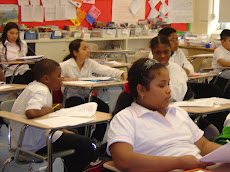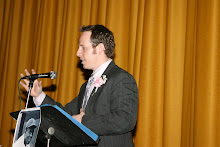FOCUS GROUP PROGRESS
For the first time ever, we generated additional time for departments to meet on a staff meeting day. By covering all the classes for the last period of the day, we were able to provide an additional 50 minutes for each of you to meet with your department. We still have to adjust the logistics of what the kids would do in the future because the school was too vulnerable to incidents and the time was not productive for the students in accomplishing any goals. The feedback from staff was positive as far as the time being used to move the focus groups forward. The math department was able to settle on a system to track the progress of the students, Science and Social Studies were able to explore the goal setting process and how to adjust instruction to help students achieve their goals, and ELA was able to make huge steps in catching up with all the other departments.
Administration is exploring ways on how we produce more time for departments to have more time to meet outside of their regular meetings. We will most likely repeat the last period staff meeting again but also include an additional period every two weeks. Once we finalize this type of schedule, we will share it with you in your department meetings.
FOCUS GROUP OBJECTIVES
Some people have been inquiring about the objective of the focus groups. Many of the objectives were shared when we originally launched the initiative but I surely do not mind sharing them with you in this Principal’s Message. The following is a comprehensive list of the objectives of the focus groups:
• To improve instruction by directing it to the exact needs of our students
• To develop instruction that is connected from grade to grade
• To identify exactly what professional development we need
• To create a network of professional educators to support each other by identifying strengths and weaknesses using the progress of our students to measure
• To directly connect AIS and other services to what is taking place in the regular classroom
• To involve the students and parents in the development process of our students
In summary, by finding out the exact needs of our students, we can focus our instruction for our students by providing tutoring services within the independent/group work of the workshop model. It is natural to walk around the room to make sure students are all on task. If you have assessed that several students will need direct support, you can schedule that during the 15 to 20 minutes so you can assure the students develop and do not fall behind. This way you can make sure growth is achieved rather than students on task.
As you continually support and assess your students, you can measure the students’ progress. If you struggle to help the student achieve his or her goal, we can explore professional development that will help you improve in providing instruction for certain skills (if you notice a pattern with a particular skill). It can also help us seek specific services to help in the development of certain skills such as Speech for decoding or AIS for comprehension. Furthermore, if a student is unable to achieve their goal by the end of the year, we can use summer school to guarantee that a student become proficient in all goals before they continue into their next grade. The possibilities are endless.
By increasing community, we can discover all of our strengths and weaknesses and create a network of support for providing instruction for particular skills. For instance, if a teacher is successful with having students accomplish a certain goal on a regular basis, he or she can share his or her best practices. This would allow for others to gain success as well.
Finally, we open the dialogue about the goals with students and parents, we can develop a partnership in providing assistance to the students to help them achieve their goals. The parents can supervise their child from home to make sure they are doing a range of work to improve in their identified area. The child can also make sure he or she is going to make his or her benchmarks and goals to move on to the next grade. The work becomes more transparent, the accountability increases, and the ownership of the goals is increased.
Overall, by measuring the progress of the students, we can support where the students are struggling, and better yet, find out how we can improve our classrooms. By isolating fewer skills for the student to be successful at, we can ensure that they become proficient in the skills we find to be the most important to help them succeed in the future. If each year the student gathers four more skills of the twelve in our school, they are guaranteed to be proficient at all of them by the time they graduate. Measuring for success is the way to allow us to own the process of becoming better. The focus groups will allow us to find out what is working and expand on it.
ATTENDANCE FOR THE WEEK
Monday: 88%
Tuesday: 90%
Wednesday: 89%
Thursday: 88%
Friday: 84%
Birthdays:
Esther DeJesus February 22nd
Sheryl-Ann Mayers February 24th
Phil Williamson February 24th
Quote of the Week
”A successful person is one who can lay a firm foundation with the bricks that others throw at him or her.”
---David Brinkley
Sunday, February 8, 2009
Subscribe to:
Post Comments (Atom)





No comments:
Post a Comment